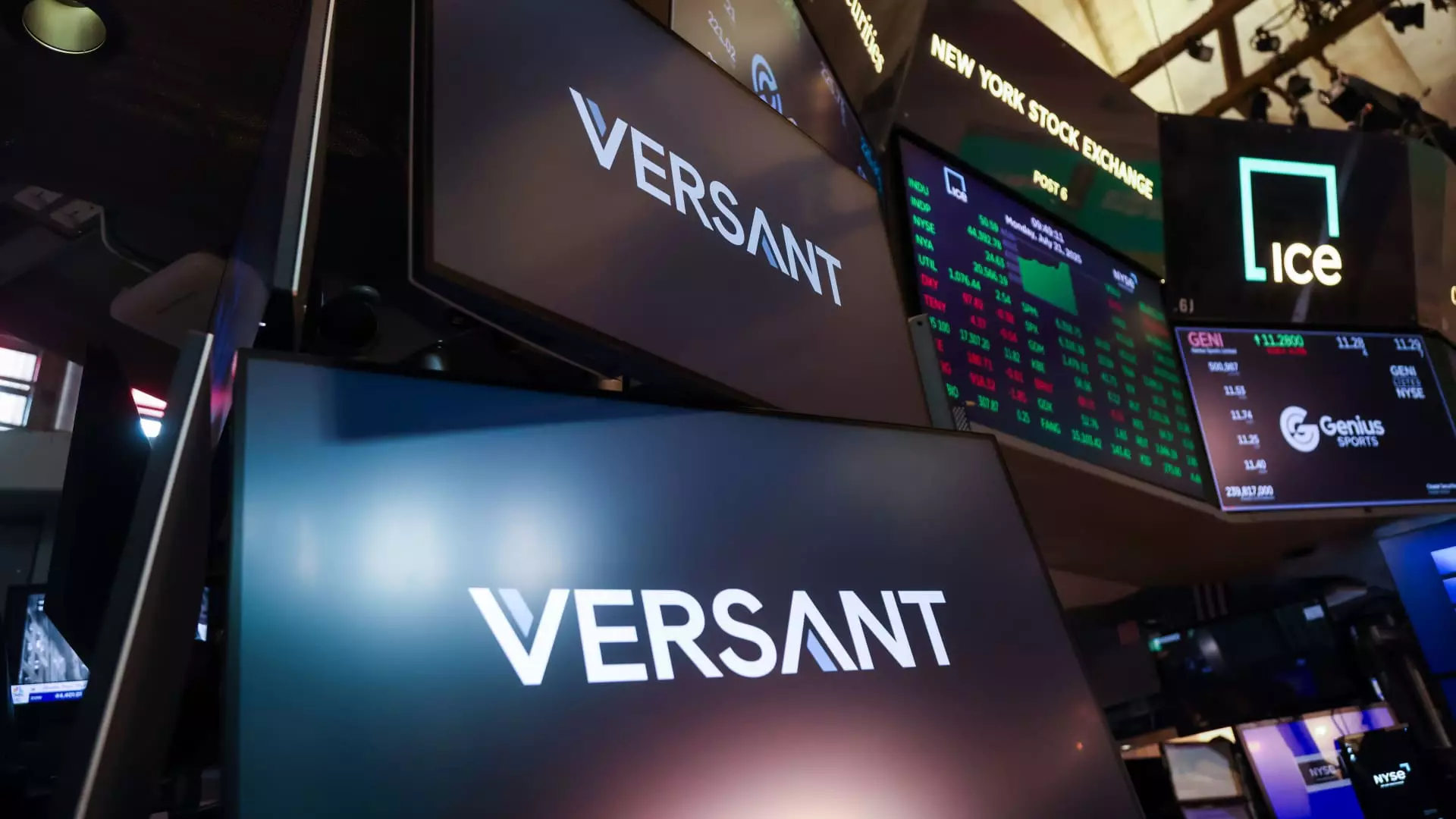The announcement of Versant, Comcast’s newly spun-off parent company for its cable networks and digital assets, sparks more than just corporate restructuring — it reveals a bold attempt to recalibrate power within the media landscape. At first glance, the move seems to be a strategic repositioning, a way for Comcast to shed traditional cable assets amid declining subscriber numbers and a rapidly changing digital environment. However, beneath this veneer, the decision to create an independent entity raises critical questions about whether this is a shrewd maneuver or a reckless gamble with potentially destabilizing consequences.
By isolating its cable and digital brands, Comcast might aim to unlock shareholder value, but does this also mean surrendering its influence in the sprawling media universe? The new entity, Versant, will house big-ticket properties like NBCUniversal cable networks and influential digital platforms such as Rotten Tomatoes and Fandango. While these assets are valuable, their independence could diminish the bargaining power of the broader corporate entity. This move could fragment market influence, leading to a more polarized and competitive media ecosystem where conglomerates no longer serve as unified voices but fractured entities vying for dominance.
Powerful Board, Questionable Future
The roster of Versant’s board members underscores a strategic emphasis on experience across media, finance, tech innovation, and global operations, but it also raises eyebrows regarding the direction this company might take. Mark Lazarus, a seasoned media executive, stands ready as CEO, and David Novak’s role as chair signals an intent to leverage traditional corporate leadership to navigate the shifting terrain. Yet, it is the composition that warrants scrutiny: a blend of industry veterans, finance gurus, technologists, and even arts and lifestyle entrepreneurs. Such disharmony in backgrounds could hinder cohesive strategic planning unless tightly managed.
The inclusion of individuals like Rebecca Campbell and David Eun suggests a bells-and-whistles approach to innovation and international content. However, history shows that such boardroom expertise often outweighs operational agility, especially when the media industry faces digital disruption. The risk here is that Versant could become a collection of high-profile individuals more interested in prestige and networking than in driving a clear, consumer-focused strategy. The challenge will be translating their collective wisdom into a unified vision that can compete amidst giants like Netflix, Disney, and Amazon.
Is This a Victory for Media Liberals or a Corporate Power Play?
From a liberal center-wing perspective, this shift signals a troubling trend: the continued commodification of public interest media into fragmented, profit-driven entities. Instead of fostering diverse, accessible content for a broad spectrum of audiences, Versant’s creation may serve to consolidate media influence into a handful of elite boards and investors. The move risks intensifying the hierarchies in media ownership, marginalizing voices that do not serve corporate interests, and diminishing the public’s right to a pluralistic media environment.
Furthermore, this partitioning reflects corporate priorities favoring shareholder value over the social responsibilities that come with influential content—educational, cultural, or political. Even as the media landscape morphs into a battleground of digital innovation and globalization, the core concern remains: will Versant truly serve the public good, or will it prioritize the generation of profits, further distancing media from being a democratic tool?
The Road Ahead: Innovation or Consolidation?
While some see Versant’s spinoff as an opportunity for fresh innovation and a chance to challenge entrenched giants, the reality appears more complicated. The digital assets tucked under Versant, such as Rotten Tomatoes and GolfPass, are already niche platforms with dedicated audiences, but their independence could lead to silos or reduced synergy with traditional media. These platforms, viewed through a liberal lens, should ideally be part of a broader vision that promotes equitable access and diverse content—something that pure market competition does not inherently guarantee.
Moreover, the decision to spin off these properties while maintaining a core leadership with deep ties to traditional media suggests an underlying tension. Does this signal a renewed commitment to innovation, or merely a strategic retreat to maximize shareholder returns? The latter seems more plausible, and in doing so, it underscores the ongoing challenge for liberals advocating for media that serve democratic and social needs over corporate greed.
Versant’s formation exemplifies the ongoing struggle between corporate strategy and societal obligation. It is a move that cleverly navigates financial and operational boundaries but also embodies the risks of prioritizing shareholder profits at the expense of media diversity and public accountability. Whether this spinout will prove to be a visionary shake-up or a strategic retreat remains to be seen, but it undoubtedly marks a pivotal point in the shifting power dynamics of the media industry.


Leave a Reply